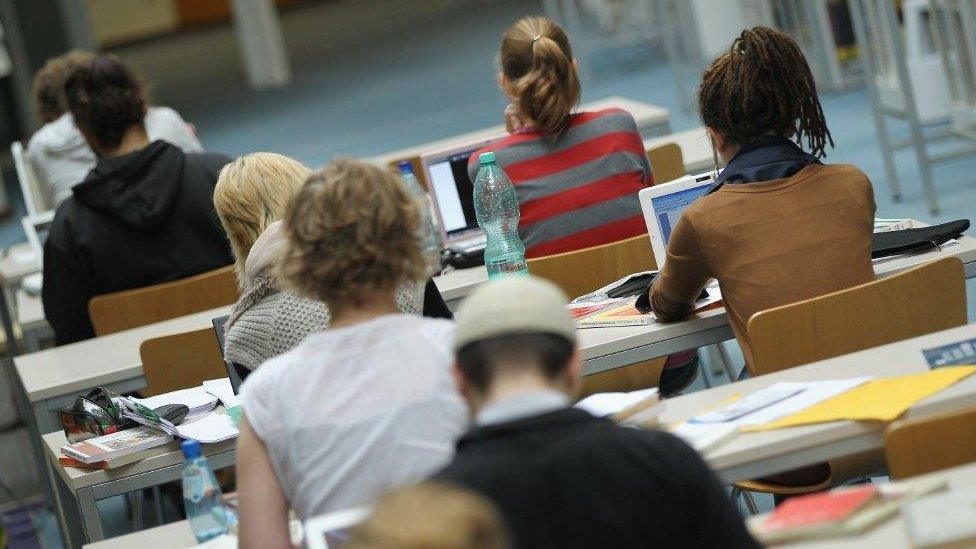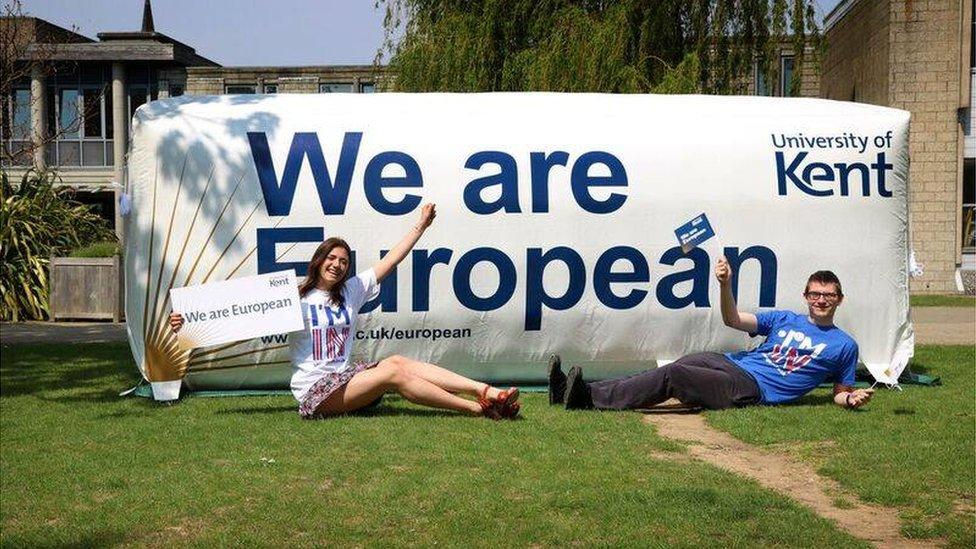Sharp drop in EU student applications to UK universities
- Published

European students could have been put off applying to UK universities by uncertainties over funding
Numbers of EU students applying for the most competitive UK university courses have dropped sharply, new figures show.
The deadline for medicine, dentistry, veterinary science and Oxbridge passed on October 15 with EU applications down 9%, says admissions body Ucas.
The figures follow warnings that European student numbers could crash in the wake of June's Brexit vote.
A government guarantee on EU student funding came on 11 October - four days before the application deadline.
'Full picture'
Applications from EU students for these very selective courses were down 620 on last year at 6,240 - ending a recent trend for annual increases.
However the number of UK students rose 3% to 39,440 and applications from outside the EU rose by 1%, the figures show.
European students currently pay the same fees and have the same access to loans as UK students - but the vote to leave the EU left those considering courses starting in 2017 and 2018 unsure whether this would hold for the full duration of their courses.
The government's announcement may have come too close to the deadline to reassure them, university leaders suggest.
Nicola Dandridge, chief executive of the vice-chancellors' group, Universities UK, said the applications window opened on 6 September, "but the government guarantee on fees and financial support for EU students for 2017 entry was not provided until 11 October, only days before the deadline."
She urged the government to extend these transitional arrangements for courses starting in 2018, as prospective European students would soon be starting to consider whether to apply to UK universities.
"Only a small percentage of applicants apply by this date and we must wait until the main January deadline before we see the full picture for this application cycle. We know that demand from overseas for UK university courses remains strong due to the high quality of British universities.
"This fall does, however, highlight the importance of ensuring that prospective European applicants are made fully aware of the fees and financial support arrangements well in advance of the applications window. It is important also that we make clear that European students continue to be welcome in coming to the UK to study."
'Important contribution'
Ucas Chief Executive Mary Curnock Cook called the overall increase in applications "encouraging... particularly given the 2% decrease in the 18-year-old population".
Ms Cook said Ucas would be watching numbers of EU applications in the run-up to the main January deadline for university courses starting next year, "especially now that the government has confirmed arrangements for continuing access to student loans for 2017 courses."
A government spokesman said: "International students make an important contribution to the UK's world-class universities.
"It is too early in the application cycle to predict reliable trends, but the overall increase in applicant numbers is positive - and suggests even more students will be able to benefit from higher education next year."
The British Medical Association said the decline in applications for medicine from European students was particularly worrying.
"The government should be focusing on creating a health service that can both attract and retain the doctors it needs to deliver the best possible care for patients," said Dr Charlie Bell, co-chair of the BMA's medical student committee.
- Published11 October 2016

- Published7 September 2016
